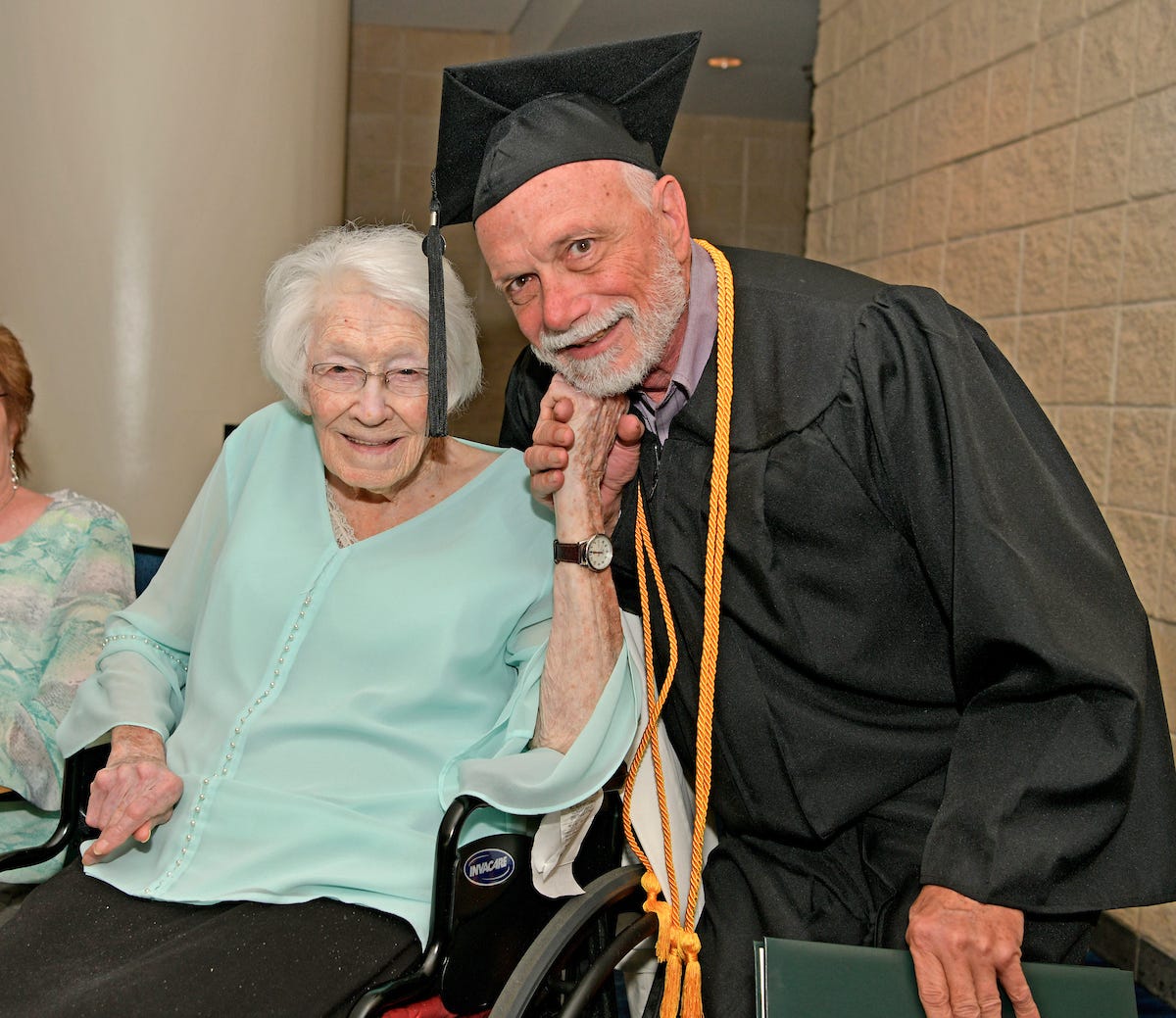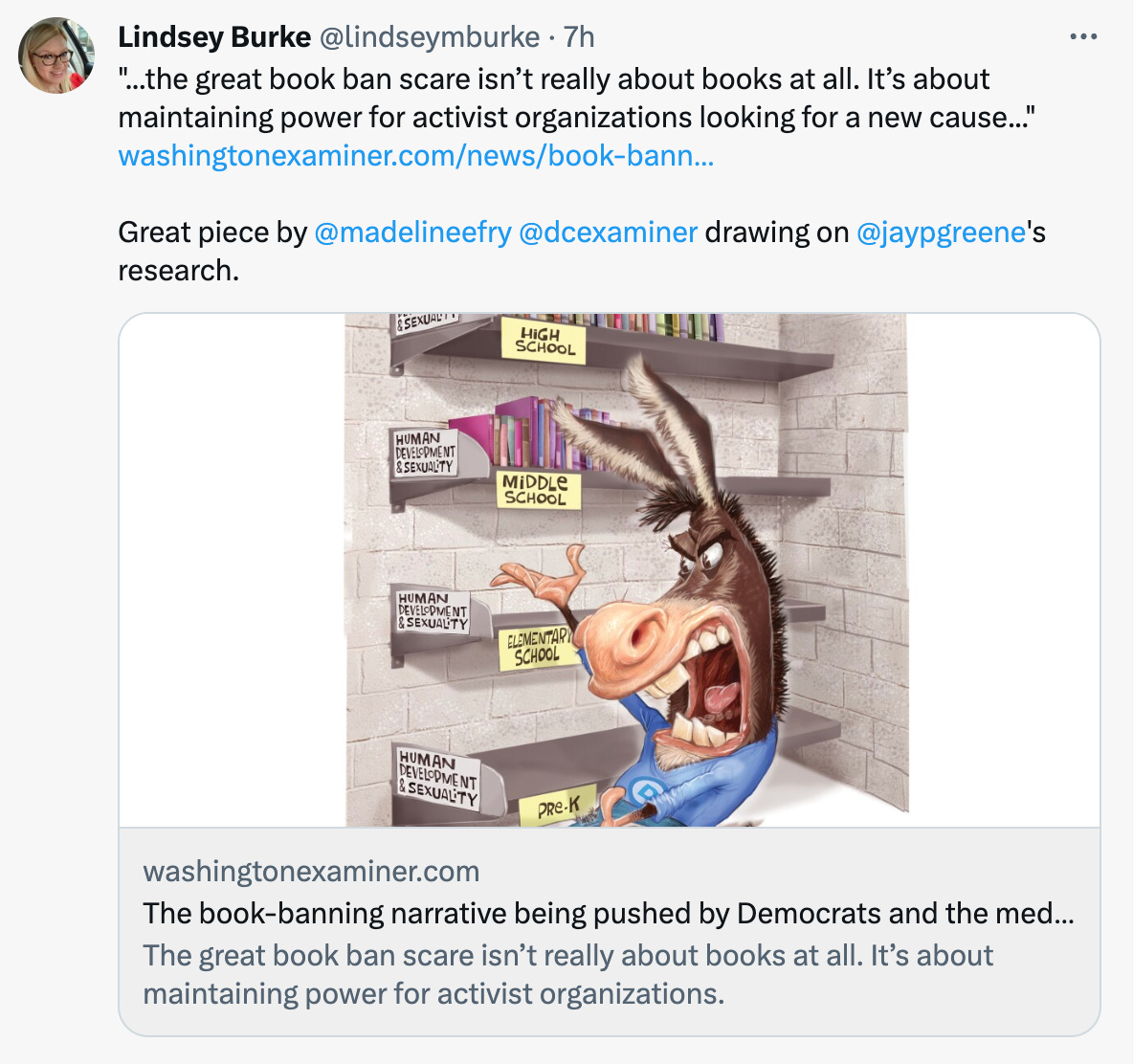VERBATIM: The achievement gospels and education democracy
Just some odds and ends about education before you log out for the weekend
Good Citizen,
Student achievement is the only thing that matters in education. I can get lost in education politics sometimes, but in the end, outcomes are the first and last thing I should always communicate to you.
On that note, we need good news.
ACHIEVEMENT GOSPELS: She was born in prison and raised by a single father, but because of tutoring and community support Sky Castner will be a Harvard student this fall. VERBATIM: “Throughout high school, Castner has been part of The Academy for Health and Science Professions at Conroe High School, and she said being in that environment pushed her to do her academic best. The primary mission of the academy is to prepare students who are interested in science, mathematics, and their applications for future success.” (READ)
ACHIEVEMENT GOSPELS II: He graduated high school in 1969 but never went to college. Instead, he worked in jobs as varied as taxi driving and telemarketing. In a “lightning bolt” moment, he heard a radio ad for Georgia Gwinnett College that caught his attention. He immediately inquired about the program, enrolled, and this past May, Sam Kaplan became the first of his seven siblings to graduate college (with summa cum laude honors, no less). His 99-year-old mother was there to see it all. (READ)
Here he is:
ACHIEVEMENT GOSPELS III: Big shoutout to David Garcia Natividad! His grit and perseverance have earned him over $1M in scholarships. Come fall, he's off to Johns Hopkins University to pursue a degree in Electrical and Computer Engineering with an impressive annual scholarship of $83K. Born to immigrant parents from Mexico, David's journey has been truly inspiring. He dreams of using his education to lessen our reliance on electronic devices and stimuli. (READ)
ACHIEVEMENT GOSPELS IV: Kymera Mitchell, a Chicago resident who was diagnosed with autism and PTSD at the age of 6, has become an inspiration as she graduates high school with a perfect 4.0 GPA, 19 college acceptances, and eight full-ride scholarships. This exceptional student, now 18, received acceptances from prestigious universities such as Howard University, Tuskegee University, DePaul University, University of Illinois Chicago, and the School of the Art Institute of Chicago.
Alongside her stellar academic performance, Mitchell is a recipient of numerous merit awards from the James R. Jordan Foundation. She also showcases her dedication and grit in the sports arena, winning over 30 Special Olympics awards in local and state games and competing in events like track and field, shot put, bocce, and floor hockey. Mitchell credits her success to her constant self-motivation and the positive affirmations she received from her teachers over the years. (READ)
CHARTERS WORK: More good news. Jonathan Chait reports on a new CREDO study that finds “unambiguously…students on average gain more learning in charter schools than in traditional public schools.” VERBATIM: “CREDO finds that a given student is now likely to learn more in a charter school than a demographically identical student in a traditional public school. Beneath that top-line finding, there is tremendous variation. The details matter tremendously. But the specifics do not undermine their conclusion that charter schools offer a promising model for closing the achievement gap. On the contrary, the details make the case far stronger than the top-line figures would indicate.” (Intelligencer)
BLACK CHARTERS: A new report from Kamar O’Guinn and Dr. Charles Cole studies the positive effects of HBCU alum who run charter schools that create learning environments for Black children in keeping with the legacy institutions. The fellas joined me and Sharif El-Mekki for a discussion about their report.
Check it out:
DON’T JAIL THEIR MINDS: Whatever you believe about incarcerated people, you should think of them as worthy of human dignity and needing intellectual growth like the rest of us. This means opening every pathway for them to grow academically. THE GOOD NEWS: starting July 1, over 700,000 incarcerated individuals in the U.S. will gain eligibility for Pell Grants - need-based financial aid that doesn't require repayment - for the first time in almost 30 years. These grants, which cover up to $7,395 per academic year in college costs, can be used towards prison education programs (PEPs) leading to various qualifications. This expansion follows the success of an experimental program called Second Chance Pell, which has helped incarcerated students earn over 7,000 credentials since 2015. (READ)
THE CITIZEN STEWART SHOW: This week I was lucky to have former Secretary of Education Arne Duncan on our show to discuss how to regain a nonpartisan education agenda focused on student outcomes. As a bonus, Stacey Shells Harvey also joined me to talk about policies that retain students in 3rd grade when they don’t pass reading proficiency tests. It got a little spirited.
Check it out here:
If you’re the type who can never get enough of great podcasts (hopefully you think mine is great!), you should check out my colleagues’ shows on the Branch Media network.
THOSE DAMNED BANS: Listen, you might wonder why I’m so animated about what I see as a right-wing attack on educational, intellectual, and academic freedom. I just want to be the guy in the movie who warns others when the obviously bad thing is about to happen that dooms us all.
Yet, I’m glad others see it too.
President Biden must know that the book bans popcorning across the country is good for Dem business. While conservatives marvel at the plastic parent movement they’ve funded and organized to instigate white grievance against minorities and send public schools into divisive chaos, progressives are reading the research on just how unpopular educational censorship is. That could be why the President is investing in a federal “coordinator” to fight bans. VERBATIM: “Several new protections for LGBTQ students and families were unveiled on Thursday by the Biden administration, including establishing a coordinator to "lead the charge" against banning books in schools, administration officials said. The yet-to-be-named Education Department coordinator will train school districts and advise them that banning books "may violate federal civil laws if they create a hostile environment for students," said White House domestic policy adviser Neera Tanden.” (READ)
Attempting to rescue the book ban issue, folks at the MAGA research mill known as Heritage Foundation are trying to muddy the waters with a semantic battle about the word “ban.”
Is it a ban if books and materials are disallowed from some students but still available for others?
Here’s Lindsey Burke from Heritage:
In the Washington Examiner story that Burke’s tweet links to there is a quote from her Heritage colleague and chief propagandist Jay Greene about the free speech organization PEN America which monitors book bans nationally. VERBATIM: “They’re saying, ‘Banned means whatever we say it means, and as long as we’ve defined it in some methodological appendix, then we’re not lying…But they’re deceiving, they’re misleading” - Jay Greene
Jay has a way with words that makes up for his allergies to facts.
PEN offers a precise definition on its website of what constitutes a book ban and an abridging of free speech:
PEN America defines a school book ban as any action taken against a book based on its content and as a result of parent or community challenges, administrative decisions, or in response to direct or threatened action by lawmakers or other governmental officials, that leads to a previously accessible book being either completely removed from availability to students, or where access to a book is restricted or diminished.
[…]
School book bans take varied forms, and can include prohibitions on books in libraries or classrooms, as well as a range of other restrictions, some of which may be temporary. Book removals that follow established processes may still improperly target books on the basis of content pertaining to race, gender, or sexual orientation, invoking concerns of equal protection in education.
And, here’s how PEN explains the importance of the moment we’re in with the growing number of book bans:
Many Americans may conceive of challenges to books in schools in terms of reactive parents, or those simply concerned after thumbing through a paperback in their child’s knapsack or hearing a surprising question about a novel raised by their child at the dinner table. However, the large majority of book bans underway today are not spontaneous, organic expressions of citizen concern. Rather, they reflect the work of a growing number of advocacy organizations that have made demanding censorship of certain books and ideas in schools part of their mission.
National efforts to limit what children can read and to override the expertise of local library professionals, educators, school boards, and parents who want their children to read broadly are part of a national strategy by weird Christian Dominionists, neo-white nationalists, and paleoconservatives.
That’s my commentary. PEN says it a little differently:
PEN America has identified at least 50 groups involved in pushing for book bans across the country operating at the national, state or local levels. Of those 50 groups, eight have local or regional chapters that, between them, number at least 300 in total; some of these operate predominantly through social media. Most of these groups (including chapters) appear to have formed since 2021 (73 percent, or 262). These parent and community groups have played a role in at least half of the book bans enacted across the country during the 2021–22 school year. At least 20 percent of the book bans enacted in the 2021-22 school year could be directly linked to the actions of these groups, with many more likely influenced by them; in an additional approximately 30 percent of bans, there is some evidence of the groups’ likely influence, including the use of common language or tactics.
NOT OUR MOMS: Speaking of hate groups, Moms for Liberty got listed as one by the Southern Poverty Law Center. VERBATIM: The Southern Poverty Law Center (SPLC) has labeled Moms for Liberty a hate group. In their latest Year in Hate & Extremism report, the nonprofit civil rights advocacy group described Moms for Liberty as “one of the most recognized names in the anti-student inclusion movement.” The report also mentions the group’s willingness to “fight tooth and nail to preserve the unseen but understood caste system existing in their public schools and communities.” (BOOK RIOT)
THE SUNDOWN STATE: Who would have known that education censorship laws in the country’s largest school choice market would stifle academic freedom? Ask Florida Professor Sam Joeckel. Earlier this year his contract was scrutinized due to allegations of 'indoctrinating students' through incorporating a racial justice unit in his course outline. After 21 years of teaching, he was fired. So, conservatives, tell me more about cancel culture, political correctness, and how racism isn’t systemic. (WPBF)
TAKE ACTION: Do you want to be more than a reader? Join these groups who are fighting the good fight to save democracy in education:
Until next week, remember, the most important thing in education is that students reach their highest potential. We can get lost in the noise of education politics, but the first and last message I should send you is one that places outcomes above all else.
Be a good citizen.






